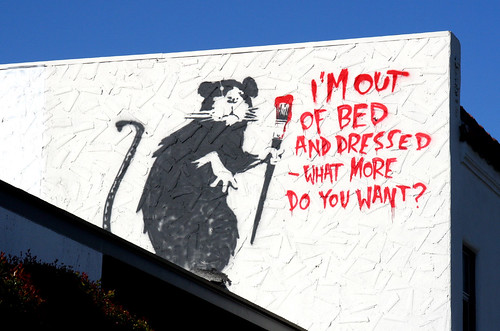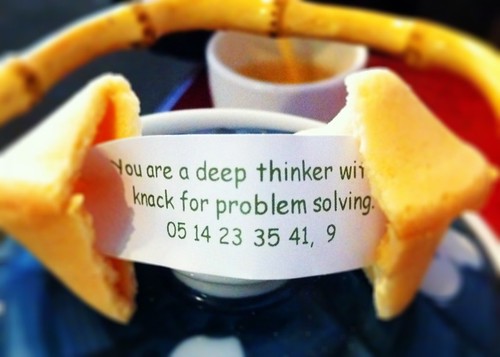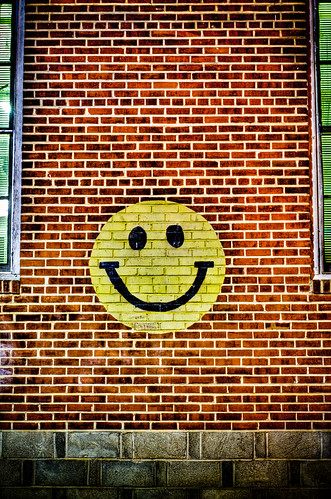Does creativity require freedom or constraints?
t of both: This dissertation is about how constraint - restrictions to freedom that limit and direct search - influences creativity. Freedom is often associated with creativity, yet recent work in the decision making literature suggests that too much freedom can be paralyzing when it provides too many choices. This dissertation examines how the extent of constraint imposed on a task, when conceptualized as a continuum, affects creative processes and outcomes. It employs a multi-method, multi-level approach through three studies.…
2 minutes
To quickly and creatively solve a problem should you give it to someone else?
n Pink's fantastic blog covers interesting new research that "when people solved problems on behalf of others, they produced faster and more creative solutions than they did when they solved the same problems for themselves." Subjects were more likely to come up with the answer on behalf of another person than for themselves; the farther away the other person was imagined to be, the more likely the participants were to come up with the correct answer. Polman and Emich say…
1 min read
The Simple Thing Will Help You Communicate Better, Learn More And Enhance Problem Solving
sturing when you talk. It can communicate important information when you're speaking: We explored how speakers and listeners use hand gestures as a source of perceptual-motor information during naturalistic communication. After solving the Tower of Hanoi task either with real objects or on a computer, speakers explained the task to listeners. Speakers’ hand gestures, but not their speech, reflected properties of the particular objects and the actions that they had previously used to solve the task. Speakers who solved the…
4 minutes
Is there an easy way to increase insight and creativity?
ile: When we're nervous our attention tends to narrow. We stop noticing what's going on around the edges and only see what's right in front of us. This is true in both a literal and a metaphorical sense: when nervous or stressed we're less likely to notice ideas that are at the edge of our consciousness. But to gain insight into a problem, it's often precisely these peripheral ideas we need. Cue a smile. Smiling makes us feel good which…
1 min read
Can frowning when you’re happy make you more creative?
.The study shows that when bodily expressions are in conflict with one's actual feelings – such as recalling a happy memory while frowning or listening to sad music while smiling – people become more likely to accept and embrace atypical ideas. Kellogg researchers Adam Galinsky and Li Huang suggest that this "mind-body dissonance" sends a signal to the brain that something is out of sync and prompts it to break its normal cognitive boundaries. "Our minds are trained to operate within a 'normal'…
1 min read
Is artwork of higher quality when we’re not paid to create it?
a Daniel Pink's very interesting book Drive: The Surprising Truth About What Motivates Us. Teresa Amabile, the Harvard Business School professor and one of the world’s leading researchers on creativity, has frequently tested the effects of contingent rewards on the creative process. In one study, she and two colleagues recruited twenty-three professional artists from the United States who had produced both commissioned and noncommissioned artwork. They asked the artists to randomly select ten commissioned works and ten noncommissioned works. Then Amabile and…
2 minutes
Are angry people more creative than sad people?
ecdotes and introspective reports from eminent scientists and artists aside, a systematic test of the putative creativity-enhancing effect of anger is missing. This article fills this void with three experiments examining creativity as a function of anger (vs. sad or mood-neutral controls). Combining insights from the literatures on creativity and on mood and information processing the authors predicted that anger (vs. sadness and mood-neutral control) triggers a less systematic and structured approach to the creativity task, and leads to initially…
1 min read
Another way to be more creative:
ke friends with people from other cultures: This research examines the effects of multicultural social networks on individuals’ creative performance. Combining network analysis with experimental methods, two studies using different samples found that networks’ degree of cultural heterogeneity positively predicts creativity on tasks that draw on varied cultural-knowledge resources but not on other tasks. The results also indicate that a culturally heterogeneous network increases the likelihood of receiving culture-related novel ideas from others in the network whether or not they…
1 min read








